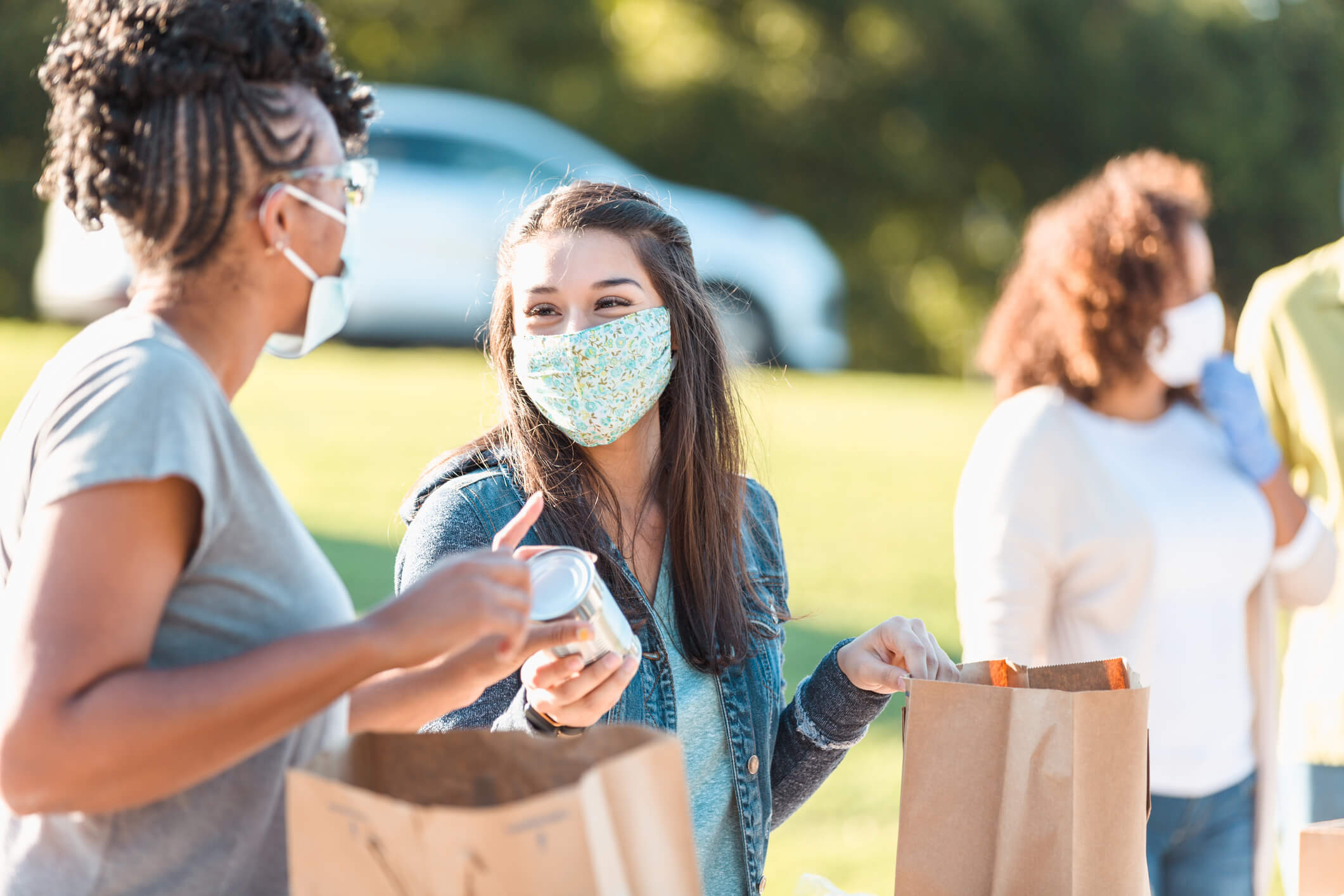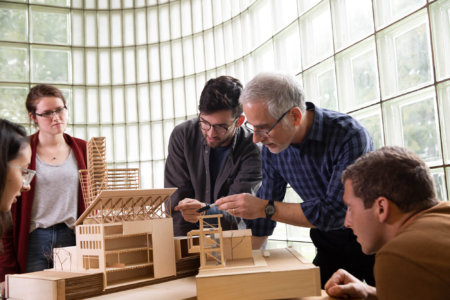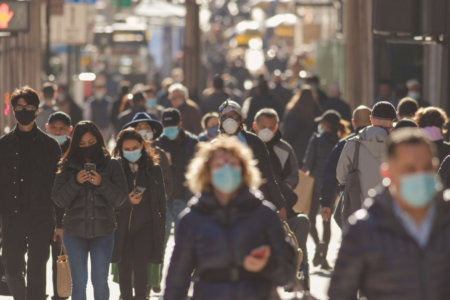April 7 of each year marks the celebration of World Health Day – sponsored by the World Health Organization to shed light on preventable gaps in health outcomes around the globe. For 2021, the focus is on eliminating health inequities.
In prior years, this annual event has brought to light key issues like mental health, maternal and child care, and climate change. Recent advances in tech and commerce have highlighted the growing disparities (economic, educational and health) between more established nations and developing countries.
Globalization has facilitated economic growth but it has also helped accelerate the spread of communicable diseases across state, national and regional borders faster and more easily than ever. In the last decade, the world has had to handle two major outbreaks of high-threat pathogens previously considered to be extremely rare: the Ebola epidemic in 2014 and the Zika virus in 2015. Closing out the last decade, the rise of COVID-19 further proved that communicable diseases can become catastrophic quickly. The pandemic has only highlighted the impact of social and economic inequity on public and population health.
In the US and abroad, many individuals — particularly those from vulnerable communities — still lack access to quality healthcare for a number of reasons. According to a national survey conducted by Cigna, social isolation and loneliness are becoming major causes of concern. The effects of the above have more than underscored the importance of investing in public health infrastructure, systems and most importantly – public health professionals.
At Thomas Jefferson University College of Population Health (JCPH), students are provided with the knowledge and experience to evolve into highly skilled professionals –sparking positive change for a healthier future.
“Public health at Jefferson is the place where science leads the way and allows us to do better across spheres, spaces, ideologies and political discourse,” says JCPH’s program director of public health Dr. Rosie Frasso.
“We are collaborating across disciplines, with artists, architects, clinicians and innovators to raise awareness, build bridges and do what matters. We create evidence that can shed light on issues and inform policy; we build programs that help people overcome barriers to health; and we create strategies that help providers to support their patients’ social, emotional, as well as physical health needs.”
To produce these changemakers, the University leads by example. Working with community organizations, health department officials and professionals at Jefferson’s 14 hospital locations across Pennsylvania and New Jersey – Jefferson’s public health students get hands on experience helping members of the community.
Here are a few examples.
Well before the pandemic was at its peak, Jefferson Health received funding to provide iPads and remote patient monitoring devices to patients across the enterprise. Emergency medicine physician Dr. Kristin Rising wanted to go further, offering support to help patients learn how to use the technology to access telehealth services. Together with Dr. Frasso and some MPH students, they filled in this critical gap by launching the Digital Onboarding Taskforce (DOT) in late 2020.
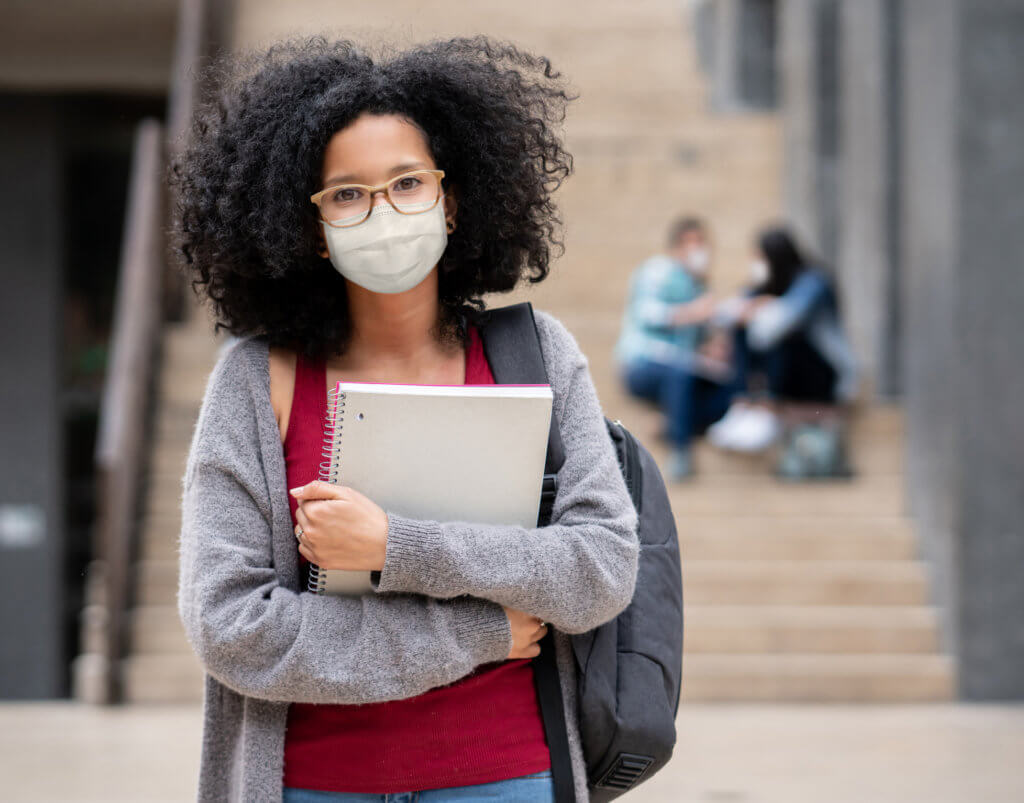
Here, topical issues are tackled in vibrant, innovative ways. Source: Thomas Jefferson University
Devanshi Dash feels indebted to many of the program’s faculty members for providing ample support and guidance. The international student from India is looking forward to applying the skills she’s honed from her Master of Public Health to follow in her footsteps with a rewarding career in the field. Medical school is a long-term aspiration of hers – one she’s certain she can accomplish, now equipped with the right background and knowledge.
“Studying in the MPH program, along with my prior work experience at Oak Street Health in Detroit, has made me aware of how far we still have to go to reach an equitable healthcare system,” she shares.
Jacquelyn “Jacqui” Hamati, a fellow MPH student, is just as optimistic about her future. She anticipates using her Jefferson education to improve access to eye care in vulnerable populations – both within and beyond the US. Engaging in world-changing research is also an aspiration of hers. Thanks to courses on research methods, epidemiology, and statistics – she’s well on her way.
These are the ambitions the accessible Jefferson MPH experience inspires. From describing perspectives and experiences of transgender and non-binary patients seeking urology care, to exploring inconsistencies among state mandates for mask-wearing and how they can lead to confusion among the public –– it’s hard not to be when topical issues are tackled in vibrant, innovative ways. Elizabeth Critchlow, an MD-MPH student, proves this alongside Dr. Amy Henderson Riley, a JCPH assistant professor. The dynamic duo collaborated to strategize “entertainment-education” – an initiative backed by international research that explores how COVID-19 updates can be conveyed creatively and effectively through storytelling.
“I learned so much!” Critchlow enthuses. “This was my first opportunity being on a research project that spanned the timeline from project inception to publication. I feel so fortunate that Dr. Riley provided space for me to be involved at almost every step.”
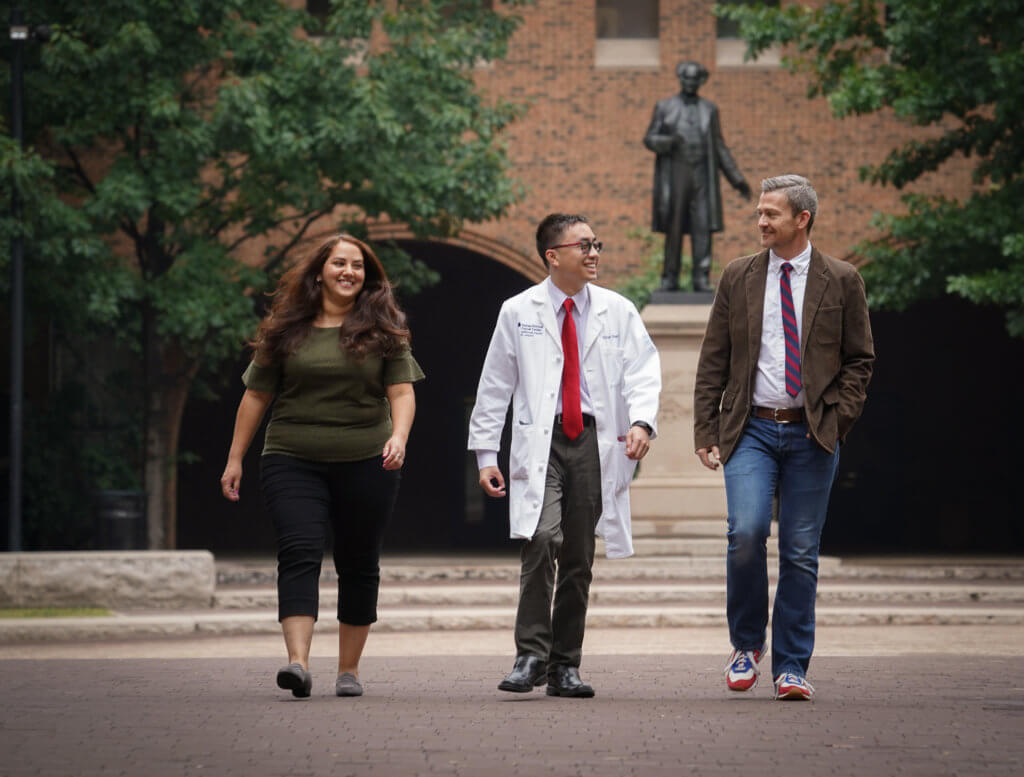
The Master of Public Health programme is not just accessible. It is robust, comprehensive, and world-changing. Source: Thomas Jefferson University
At Jefferson, many are bettering society in their own way. For MariaLisa Itzoe’s capstone project, she wrote an interactive free and downloadable book titled Tiny or Tall, Mighty or Small–Music for All, with the goal in mind to promote body positivity for children between the ages of three and eight.
“She reached into her newly acquired public health toolbox to become an expert on body positivity and children,” Dr. Frasso says. “Then, she skillfully translated the science into an engaging, interactive children’s book. Her work will make a difference, and we’re all so proud of her.”
The MPH program is robust, comprehensive, and world-changing. These outcomes are fast-tracked through learning the art and science of preventing disease, promoting physical and mental health, organizing health services, and controlling infectious diseases. It is also accessible, offered in both a full-time and part-time format – one of which is the Time Out Program, designed for medical students looking to take a year off to earn an MPH degree. Students come to Jefferson for the skills and experience that will enable them to make a difference in their communities. And, in an effort to create opportunities for students seeking to build a better world, every admitted student is granted a $10,000 scholarship.
Ready to become a Jefferson changemaker? Click here to learn more about the Master of Public Health today.
Follow Thomas Jefferson University on Facebook, Twitter and YouTube

